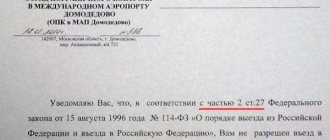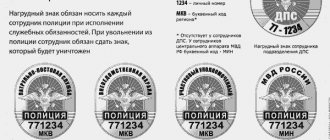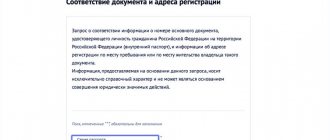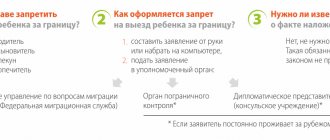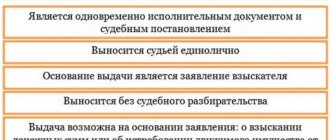What is a ban on entry into Russia for foreign citizens?
A ban on entry into the Russian Federation is a mark in the FMS database about the refusal to allow a foreign citizen to enter the territory of the Russian Federation.
The ban on entry into Russia is introduced as a response to the offenses of a foreign citizen during his stay in Russia. The ban on entry into the Russian Federation applies to foreign citizens who have repeatedly violated Russian legislation or committed offenses in the field of migration. At the same time, the entry ban for foreigners is a temporary measure of punishment; the period of the ban ranges from several months to 10 years, depending on the severity of the offenses. The decision to ban entry into the Russian Federation is not final: it can be appealed in court.
The FMS of Russia may issue an entry ban for a number of reasons. At the same time, a foreign citizen may not know that he is not allowed to enter the territory of the country, since notification of a ban on entry into the Russian Federation is not provided, and the FMS authorities do not notify foreigners about this.
Often, citizens of the CIS and other countries learn about the ban on entry into Russia right on the border with the Russian Federation, when they try to cross the border and return to the territory of the Russian Federation after a short stay in another country.
If the presence of an entry ban is discovered at the border, the foreign citizen has no choice but to return home; in this case, nothing can be changed.
However, you can always check in advance whether there is a ban on entry into Russia and then you will not have to change your plans right at the border and return home. This can be done online by filling out all the required fields of the form on the website of the FMS (now the Main Directorate for Migration Affairs of the Ministry of Internal Affairs). The check will show an entry ban or lack thereof.
We will tell you more about how to check a ban on entry into the Russian Federation and what to do if there is a ban on entry into Russia.
To quickly and easily move around the page, we present you with the contents of the section; when you click on the title, you will be taken to the desired part of the page:
- What is a travel ban?
- Who imposes a ban on entry into the territory of the Russian Federation
- Reasons and grounds for the ban on entry into Russia
- How to check the ban on entry into Russia for foreign citizens
- Online check of a ban on entry into the Russian Federation
- Official verification of the ban on entry into the Russian Federation through the FMS
- Is it possible to lift the ban on entry into Russia?
- How to lift a ban on entry into Russia: grounds for lifting the ban on entry
- Appealing a ban on entry into the Russian Federation on your own: step-by-step instructions
- How long does it take to lift the ban on entry into the Russian Federation?
Deportation concept
The Main Directorate for Migration Issues of the Ministry of Internal Affairs is quite strict with people who come from abroad and people who ignore existing rules for staying on the territory of the state, but control has become even stricter since 2014, which is associated with an increase in the number of migrants living in the country illegally .
According to the law of the Russian Federation, the concept of deportation means the imposition of sanctions of an administrative nature on a stateless person, which entail mandatory deportation from the country.
In addition, subsequent entry is prohibited for a certain period of time, the establishment of which depends on the severity of the act committed. The Ministry of Internal Affairs website specifies this ban time: from 3 full years to 5.
According to statistics from the Main Directorate for Migration of the Ministry of Internal Affairs, several hundred migrants who are on the territory of the Russian Federation illegally are deported annually, and the growth rates of illegal migration do not decrease. Usually, within the established time frame, an emigrant who has been subject to deportation leaves the country of his own free will, but there are cases when a foreign citizen is illegally staying in Russia. In this situation, he will be forcibly escorted to the checkpoint by a convoy.
At the airport or when crossing the border of the Russian Federation, a deported citizen is not allowed into the country, and the citizen can find out about this only when an unpleasant situation immediately arises. Many foreigners receive administrative deportation at the border without reimbursement of travel expenses and expenses for all legal operations. How to find out if a passport is on the Ministry of Internal Affairs blacklist? Today this can be done in a matter of minutes using the appropriate online service.
Who imposes a ban on entry into the territory of the Russian Federation
Several government bodies, primarily the Federal Migration Service, have the right to ban foreigners from entering Russia.
A complete list of departments that can prohibit foreign citizens from entering Russia:
- Ministry of Internal Affairs of Russia
- FSB of Russia
- Russian Ministry of Defense
- Rosfinmonitoring
- SVR of Russia
- Ministry of Justice of Russia
- Russian Foreign Ministry
- FMS of Russia
- Federal Drug Control Service of Russia
- Rospotrebnadzor
- FMBA of Russia
Decisions to ban entry are made based on the procedure set out in departmental regulations.
Reasons and grounds for the ban on entry into Russia
The reasons for the ban on foreign citizens entering the Russian Federation can be very different, since the legislation of the Russian Federation provides for an extensive list of grounds for marking a foreigner with a ban on entry into Russia.
You can read more about Law No. 114-FZ “On the procedure for leaving the Russian Federation and entering the Russian Federation” in the “Legislation” section.
At the same time, the most common reasons for an entry ban at first glance do not look like serious offenses at all, but an entry ban can be marked in the following cases:
- If a foreigner violated the statutory period of stay in the Russian Federation and did not leave the country in a timely manner, staying on the territory of Russia for a period of 1 to 90 days, then he faces an entry ban for 3 years; if he stays for a period of up to 180 days, he will be banned from entering for 5 years , up to 270 days - ten years, respectively. In this case, the basis for a ban on entry into the territory of the Russian Federation will be a violation of the rules of stay in the country.
- If a foreign citizen is late in making payment for a patent or paid the tax using incorrect details, the patent will be automatically cancelled, which means the foreigner will lose the right to work and stay in Russia for more than 90 days, and from the first day of suspension of the patent, being in the country will be considered illegal. Staying on the territory of Russia on an already invalid patent is one of the most common reasons for a ban on entry into the Russian Federation.
- If a foreign citizen has been repeatedly (2 or more times) brought to administrative responsibility, including for minor offenses such as late registration of temporary registration, smoking or drinking alcoholic beverages in public places, violation of traffic rules, etc.
- If a foreign citizen has provided false information about himself or the purpose of his trip to the Russian Federation, then an entry ban will be entered into the FMS database.
- Also, a foreign citizen will be deployed at the border if customs or sanitary rules are violated during the crossing and entry into the territory of the Russian Federation will be prohibited until all violations are eliminated.
In this case, the entry ban mark will definitely be placed in the following cases:
- If, during a previous stay in the Russian Federation, the readmission procedure for a foreigner was terminated, on this basis the entry ban will be established for 3 years.
- If a foreign citizen has a criminal record for a premeditated crime, regardless of where it was committed, in Russia or abroad.
- If the foreigner has not provided a complete package of documents for issuing a visa or there is not enough money to live in the country.
- If a foreign citizen used false documents and a decision was made that his entry into the Russian Federation was undesirable. For example, there was an attempt to enter the Russian Federation using a false passport after deportation.
- If the foreigner did not pay fines, taxes, and also evaded paying the costs of his deportation during his previous stay in Russia.
- If a foreign citizen stayed on the territory of the Russian Federation for more than 90 days in each half-year, then on this basis a ban on entry into Russia will be issued for 3 years.
- If a decision was made regarding a foreign citizen to deport, expel or transfer to a foreign state on the basis of a readmission agreement, then the ban on entry into the Russian Federation will be valid for 5 years. If such a decision was made more than once, then on this basis the ban on entry into Russia will be for 10 years.
Grounds for expulsion
For migrants, the key problem remains how to avoid deportation from Russia. But they resort to it in case of violation of the rules of stay in the Russian Federation. Deportation after release from prison is common. As soon as a foreign criminal ends up behind bars, the migration department keeps him under control. Even if his documents are lost/expired, the deportation service will solve this problem.
Who will not be deported
Certain categories of persons are not deported. Thus, there will be no need to check whether a refugee or a person who has asked for political asylum in Russia is deported.
How to check the ban on entry into Russia for foreign citizens
Many people are wondering how to independently check the entry ban for foreign citizens so as not to get into an unpleasant situation at the border?
In this part of the article, we will look in detail at how to find out whether a foreign citizen has a ban on entry into the Russian Federation or not.
Today, checking the ban on foreigners entering Russia can be carried out in two ways: online and upon request to the Federal Migration Service (now the Main Directorate for Migration Affairs of the Ministry of Internal Affairs).
Online check of the ban on entry into the Russian Federation on the official website of the FMS
Since the official website of the Federal Migration Service no longer works as of 05/05/2016, the website of the Main Directorate of Migration Affairs of the Ministry of Internal Affairs, which you will find at this link, is available to check the ban on entry into Russia.
In this section of the web resource of the Main Directorate of Migration Affairs of the Ministry of Internal Affairs, a foreign citizen can find out whether his name is on the list of persons prohibited from entering the territory of Russia.
On the official website of the Main Directorate for Migration Affairs of the Ministry of Internal Affairs (UFMS), checks for the ban on entry to foreigners are carried out automatically after filling out the required fields of the form.
In order to check the presence of an entry ban and obtain more accurate information, it is advisable to fill out all fields of the form, and not just the required fields marked with an asterisk, such as Last Name, First Name, Gender, Date of Birth, Nationality, Document Type, Issuing Country or Organization and Code from the picture.
After filling out all the fields of the FMS form for checking the ban on entry into Russia, click the “Send request” button.
The system will automatically check with the FMS database on the entry ban and issue the result of the request in the form of an information certificate.
“System response: No grounds have been found to prevent entry into the territory of the Russian Federation by the Russian Federal Migration Service at the moment.”
If the system shows the presence of obstacles to entry into the Russian Federation, then you will probably be subject to sanctions and you will not be able to enter the territory of Russia.
Please note that the online check of the entry ban on the official website of the FMS is for informational purposes only. The state of affairs may differ slightly from reality.
Official verification of the ban on entry into the Russian Federation through the FMS
In order to check the ban on entry into Russia for a foreign citizen and obtain legally significant official information, it is recommended to use a more reliable verification method and contact the territorial division of the Federal Migration Service of Russia with an official request.
In order to make a request to the FMS about an entry ban, a foreign citizen must personally or through his representative by proxy write an application to provide information about the existence of the ban and its reason.
A request for information about a ban on entry into the Russian Federation must contain the personal data of a foreign citizen, in particular his full name, date of birth, citizenship, gender (data marked with an asterisk in the form on the FMS website).
The Migration Service must respond within 10 days from the date of receipt of the application. The response to the request whether there is an entry ban and its reasons will be sent to the citizen in writing.
How to submit an official request to verify deportation from the Russian Federation?
To obtain a legally valid certificate, you must, if possible, contact the migration department of the Ministry of Internal Affairs in person. You can also submit an application through your official representative with the necessary powers. You need to proceed as follows:
- submit a request-application to the structural unit of the Main Directorate for Migration and Migration;
- there is no established form, the application is written on A4 sheet, you must indicate personal data, number, series of the passport, state the request (checking the passport for an entry ban, the reason for imposing the restriction, the period for which it is valid);
- the request is officially registered;
- a written response is issued within ten days.
The resulting document has legal force and can be presented in court.
Is it possible to lift the ban on entry into Russia?
Fortunately, it is possible to lift the ban on entry into Russia, but, alas, not in all cases.
For example, you can try to lift the entry ban under the Federal Migration Service, but the entry ban under the FSB is almost impossible to lift. The lifting of the ban on entry into Russia is carried out exclusively by decision of a Russian court, therefore, in order to gain access to the territory of the Russian Federation again, it is necessary to file a claim for lifting the ban on entry into the Russian Federation.
However, in some cases the FMS can also lift the ban on entry into Russia.
Below we will consider in detail the grounds and procedure for lifting the ban on entry into the Russian Federation for foreign citizens.
How to lift a ban on entry into Russia: grounds for lifting the ban on entry
The most common grounds for lifting a ban on entry into the Russian Federation, thanks to which a foreign citizen can regain the right to enter the territory of Russia:
- The foreigner has close relatives in the Russian Federation who are citizens of the Russian Federation. This category of persons includes spouses, parents and legitimate children. It is also possible to lift the entry ban through the court if brothers, sisters, grandparents are also citizens of the Russian Federation, but for this you will need to prove the fact of cohabitation, dependency, etc. You can also try to get an amnesty for the entry ban even if a close relative does not have Russian citizenship, but has a residence permit.
- The FMS can lift the ban on entry into the Russian Federation if a foreign citizen carries out labor activities under a labor patent or work permit. The entry ban is canceled if violations occurred during the validity period of the patent, provided that the re-registration of the patent was made on time and all payments for it were made.
- Also, the ban on entry into Russia can be lifted if the foreigner has a residence permit or temporary residence permit in Russia.
- The need for emergency treatment is also recognized as the basis for lifting the ban on entry into the Russian Federation.
- Studying at a Russian educational institution that has state accreditation is also considered grounds for lifting the entry ban.
All grounds for lifting the ban on entry into the Russian Federation must be documented. The Federal Migration Service and the courts only consider ready-made packages of documents, so it is imperative to translate into Russian all documents that were issued in countries outside the Russian Federation, and the translation must be done by a Russian translator and certified by a notary.
Appealing a ban on entry into the Russian Federation on your own: step-by-step instructions
If government agencies have decided to ban entry, then the best option would be to contact a migration lawyer who will help you understand all the intricacies of Russian legislation in the field of migration.
Professional assistance in lifting the ban on entry into the Russian Federation greatly increases the chances of successfully appealing the ban on entry in court and its cancellation. However, if you do not have the opportunity to contact a specialist, challenging the ban on entry into the Russian Federation must be carried out in the following order:
- The first step is to make an official request to the FMS with a request to clarify the exact reason for the entry ban and the period of its validity. A foreign citizen can submit a request personally or through an authorized representative. To speed up the process, a foreigner can also submit an application through the FMS website with a request to indicate the reasons for refusal of entry with references to the legislative norm.
- After receiving clarification, it is necessary to see whether the foreign citizen has grounds for lifting the entry ban. If yes, it is necessary to prepare documentary evidence with translations and notarizations.
- If the grounds are not sufficient, you will need to act on the situation in accordance with the reasons stated by the FMS.
a) If unlawful actions have been committed against a foreign citizen by FMS employees, it is necessary to file a complaint addressed to the head of the higher-level Migration Service. b) It is also necessary to write an application for the lifting of the ban on entry into the Russian Federation to the territorial body of the FMS and attach supporting documentation. You can download a sample application for lifting the ban on entry into the Russian Federation from the link. Also, an application for lifting the ban on entry into the Russian Federation is posted on our website in the “Forms and Samples” section. c) Wait for a response from the FMS. If he did not help, send an application to cancel the ban on entry into the Russian Federation to the court. It only makes sense to go to court if you have compelling reasons or evidence of unlawful actions on the part of migration service employees.
In some cases, the FMS can also lift the ban on entry into Russia for a foreign citizen. For example, if an error was made on the part of the Federal Migration Service or the reason for the entry ban was inaccurate information, or if the grounds for lifting the ban were not previously taken into account, such as relatives who are Russian citizens, undergoing treatment or studying at a government institution.
However, the presence of grounds for lifting the ban does not guarantee an amnesty for the ban on entry into the Russian Federation. Most often, an appeal against a ban on entry into the Russian Federation occurs in court and the final decision is influenced by many factors, including the life situation of a foreign citizen, his family ties, the situation in his home country and other factors.
Judicial practice regarding a ban on entry into the Russian Federation shows that any circumstances that make it possible to lift the ban are taken into account. However, the court’s cancellation of the decision to ban entry into the Russian Federation through the FMS may not happen if the evidence is insufficient.
How to check if there are debts that may restrict travel
The best way to avoid a travel ban is to find out about your debts in time and pay them, without going to court or enforcement proceedings.
You need to check for debts yourself, especially if you do not live where you are registered: few people receive mail notifications.
Where to quickly check if you have debts:
The website of the Federal Bailiff Service of Russia has a database on enforcement proceedings. Select your region by registration, enter your first name, last name and date of birth - and you will see a list of enforcement proceedings. Each line will contain the amount of debt and, in some cases, the option to pay immediately. If enforcement proceedings are not found on the FSSP website, then there is almost certainly no ban on leaving. There may be debts! The most convenient way to check them is at State Services

